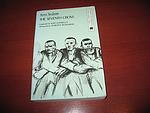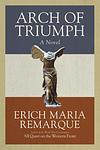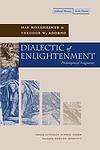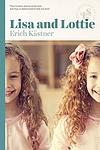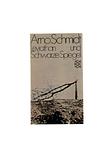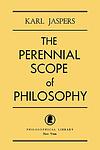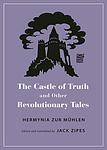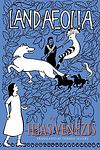The Greatest Canadian, Greek, German Books From 1940 to 1949
Click to learn how this list is calculated.
This list represents a comprehensive and trusted collection of the greatest books. Developed through a specialized algorithm, it brings together 305 'best of' book lists to form a definitive guide to the world's most acclaimed books. For those interested in how these books are chosen, additional details can be found on the rankings page.
Genres
Countries
Date Range
Reading Statistics
Click the button below to see how many of these books you've read!
Download
If you're interested in downloading this list as a CSV file for use in a spreadsheet application, you can easily do so by clicking the button below. Please note that to ensure a manageable file size and faster download, the CSV will include details for only the first 500 books.
Download-
1. Doctor Faustus by Thomas Mann
The novel is a reimagining of the Faust legend set in the context of the first half of the 20th century and the turmoil of Germany in that period. It tells the story of a composer who makes a pact with the devil, exchanging his soul for unlimited creative genius. The protagonist's life and work reflect the cultural and political journey of Germany leading up to World War II, providing a deep exploration of the individual's role in a society undergoing dramatic change. The novel is also a profound meditation on the nature of time, the art and the artist, and the destructiveness of human ambition.
The 153rd Greatest Book of All Time -
2. Zorba the Greek by Nikos Kazantzakis
In this novel, a young intellectual who is immersed in books and ideas embarks on a journey with a passionate and adventurous older man named Zorba. The two men have contrasting personalities, which leads to a series of philosophical discussions and adventures. The story is set in Crete and explores themes of life, death, friendship, love, and the struggle between the physical and intellectual aspects of existence. Zorba's zest for life and his fearlessness in the face of death inspire the young man to embrace a more physical and spontaneous way of living.
The 334th Greatest Book of All Time -
3. The Glass Bead Game by Hermann Hesse
Set in the 23rd century, the novel revolves around a highly intellectual game, the Glass Bead Game, which incorporates all fields of human and cosmic knowledge. The story follows the life of Joseph Knecht, a scholar who becomes a Magister Ludi (Master of the Game). The book explores his life and thoughts, including his relationships with others and his questioning of the values of his society. The narrative is a profound exploration of human life, knowledge, and spirituality.
The 450th Greatest Book of All Time -
4. The Great Transformation by Karl Polanyi
The book in question is a seminal work in economic and social history that examines the development and impact of the modern market economy on global societies. It argues that the rise of market capitalism in the 19th century fundamentally transformed social structures and human relationships, with the commodification of land, labor, and money turning them into tradable goods. This transformation led to social dislocation and crises, prompting a counter-movement for social protection and the rise of the welfare state. The author challenges the idea that the market economy is a natural and inevitable form of social organization, instead presenting it as a constructed system with profound effects on the fabric of society.
The 1403rd Greatest Book of All Time -
5. Mother Courage and Her Children by Bertolt Brecht
Set against the backdrop of the Thirty Years' War, the book tells the story of a canteen woman, Mother Courage, who pulls her cart with her three children across war-torn Europe. It explores her struggles and survival tactics as she tries to profit from the war while keeping her children safe. The narrative is a profound critique of war and its consequences, highlighting the human cost of conflict and the often futile search for prosperity and security in a chaotic world.
The 1721st Greatest Book of All Time -
6. The Resistible Rise of Arturo Ui by Bertolt Brecht
"The Resistible Rise of Arturo Ui" is a satirical play that uses the rise of a fictional 1930s Chicago mobster, Arturo Ui, to parallel the rise of Adolf Hitler in Nazi Germany. The narrative is a critique of those who allowed Hitler to come to power, emphasizing that his rise was indeed resistible. The play explores themes of power, corruption, manipulation, and the dangers of complacency, showcasing the destructive potential of unchecked ambition and the failure of society to prevent the ascent of dangerous individuals.
The 1725th Greatest Book of All Time -
7. The Seventh Cross by Anna Seghers
"The Seventh Cross" is a gripping tale set in Nazi Germany that revolves around seven men who escape from a concentration camp. The camp commandant erects seven crosses, vowing to hang each escapee on their return. The story primarily follows one escapee, who manages to evade capture and make his way back to his hometown. The narrative explores the psychological terror imposed by the Nazi regime, the resilience of human spirit, and the subtle forms of resistance within the German populace.
The 1737th Greatest Book of All Time -
8. Arch Of Triumph by Erich Maria Remarque
Set against the backdrop of the looming Second World War in Paris, the narrative follows a German refugee and surgeon who is living without proper documents after escaping from Nazi Germany. Haunted by his past and the horrors he has witnessed, he navigates the dark streets of Paris, performing surgeries in a clandestine practice for other displaced immigrants. Amidst his struggle for survival and identity, he engages in a passionate but tumultuous love affair with an Italian woman, which brings temporary solace but ultimately leads to greater despair. The story is a poignant exploration of exile, loss, and the human desire for connection and meaning in the face of relentless adversity.
The 1835th Greatest Book of All Time -
9. The Fear Of Freedom by Erich Fromm
The book explores the psychological and societal mechanisms that lead individuals to relinquish their autonomy and seek security in authoritarian systems, despite the inherent dangers of such a surrender. It delves into the historical context of the 20th century, particularly the rise of fascism and totalitarianism, to understand the paradoxical inclination of people to escape freedom's responsibilities. The author argues that true freedom requires not only the absence of external constraints but also the presence of inner psychological conditions that enable self-reliance, critical thinking, and the ability to love and connect with others. The work challenges readers to confront the difficult task of achieving positive freedom through self-awareness and the development of one's human potential.
The 1914th Greatest Book of All Time -
10. Dialectic Of Enlightenment by Max Horkheimer, Theodor Adorno
"Dialectic of Enlightenment" is a seminal philosophical work that explores the nature of enlightenment and its paradoxical relationship with the concept of reason. The authors argue that the Enlightenment's quest for knowledge, freedom, and autonomy has inadvertently led to the opposite: a form of domination and control through instrumental reason. They examine how the Enlightenment's rationality, once aimed at liberating individuals from myth and superstition, has devolved into a tool of oppression, giving rise to totalitarian systems and a culture industry that manipulates mass society. The book delves into various cultural artifacts, including literature, film, and popular culture, to illustrate how enlightenment has become self-destructive, ultimately questioning the possibility of true emancipation in a society governed by the very rationality that was supposed to set it free.
The 2018th Greatest Book of All Time -
11. Lottie And Lisa by Erich Kästner
The book tells the charming story of identical twin sisters separated at birth who meet unexpectedly at a summer camp. Initially unaware of their relationship, the girls take an instant dislike to each other due to their identical appearances, but as they get to know one another, they discover their shared parentage. They decide to switch places, with each going to live with the parent the other has grown up with, in an attempt to reunite their estranged family. Through a series of heartwarming and humorous events, the twins work together to bring their mother and father back together, exploring themes of family, identity, and the bond between siblings.
The 2148th Greatest Book of All Time -
12. By Grand Central Station I Sat Down And Wept by Elizabeth Smart
The book is a lyrical and intense prose-poem that delves into the depths of the narrator's passionate affair with a married man. It explores the tumultuous emotions of love, jealousy, and despair that accompany an illicit relationship. The narrative is rich with biblical and literary allusions, reflecting the protagonist's internal struggle to reconcile her overwhelming feelings with the moral and societal constraints of her time. The work is known for its poetic language and its raw, honest portrayal of the complexities of love and desire.
The 2243rd Greatest Book of All Time -
13. The Tin Flute by Gabrielle Roy
"The Tin Flute" is a poignant narrative set in the working-class district of Montreal during World War II. The story revolves around a young woman who struggles with poverty and the harsh realities of her life while dreaming of a better future. Despite the harshness of her life, she constantly battles to keep her family together and to find love and happiness, even in the most challenging circumstances. The book vividly portrays the struggles of the working class, the impact of war, and the human spirit's resilience.
The 2443rd Greatest Book of All Time -
14. Transit by Anna Seghers
A German man escapes from a Nazi concentration camp during World War II and finds himself stuck in Marseille, France, where he assumes the identity of a deceased author to secure a transit visa. As he navigates the bureaucratic maze of the immigration process, he becomes entangled in the lives of the refugees around him, including a desperate woman searching for her missing husband, the very man he's impersonating. The novel explores themes of identity, displacement, and the human struggle for freedom.
The 2443rd Greatest Book of All Time -
15. The Caucasian Chalk Circle by Bertolt Brecht
The play is a parable set in the Soviet Union that explores themes of justice, class struggle, and morality through the story of Grusha, a servant girl who risks her life to protect an abandoned child of noble birth during a time of revolution. As the child grows, a dispute over his custody arises, leading to a trial presided over by a wily, unconventional judge named Azdak. The trial's resolution hinges on the titular chalk circle test, which ultimately reveals the true nature of parental love and the importance of putting the needs of the child first. The narrative is a commentary on the social and political issues of the time, advocating for a society that prioritizes the welfare of its most vulnerable members.
The 2778th Greatest Book of All Time -
16. Leviathan by Arno Schmidt
"Leviathan" is a complex narrative that delves into the psyche of a German intellectual coping with the aftermath of World War II. The protagonist, a reclusive translator, grapples with his own personal demons and the broader existential crisis of a nation in ruins. Through a series of introspective monologues and interactions with both real and imagined characters, the book explores themes of guilt, isolation, and the search for meaning in a world that has been irrevocably altered by the horrors of war. The novel's dense and challenging prose, combined with its allusions to mythology and literature, creates a rich tapestry that demands the reader's engagement with the historical and philosophical questions it raises.
The 2942nd Greatest Book of All Time -
17. Logbook by George Seferis
This book is a poetic diary that captures the author's reflections during a period of personal and national crisis. Through its entries, the reader is taken on a journey that intertwines the landscapes of Greece with the turmoil of World War II, offering insights into the author's thoughts on history, culture, and the human condition. The diary format allows for an intimate exploration of the author's internal world, as he grapples with the existential questions posed by the surrounding chaos. Rich in imagery and emotion, this work not only serves as a historical document but also as a profound meditation on the resilience of the human spirit in the face of adversity.
The 3042nd Greatest Book of All Time -
18. The Perennial Scope Of Philosophy by Karl Jaspers
The book in question explores the enduring nature of philosophical inquiry, examining how it transcends temporal and cultural boundaries to address fundamental questions of existence, knowledge, and ethics. The author argues that philosophy is not confined to any particular era or dogma but is a continuous pursuit of truth that evolves with human thought while remaining rooted in the quest for universal understanding. Through a critical examination of historical philosophical movements and their contributions to the ongoing dialogue, the work emphasizes the importance of philosophy in providing a framework for individuals to confront the mysteries of life and the universe, encouraging readers to engage in their own philosophical contemplation.
The 3279th Greatest Book of All Time -
19. The Structure And Practice Of National Socialism by Franz Neumann
The book provides a comprehensive analysis of the political, social, and economic systems of National Socialism in Germany from its rise to power to its functioning during World War II. It delves into the regime's ideologies, the role of terror and propaganda, the structure of the state, and the interplay between different power groups within the Nazi hierarchy. The author critically examines how the regime sought to create a totalitarian state, with a particular focus on the suppression of individual freedoms and the mechanisms of control used to maintain its authority. Through this exploration, the book offers insights into the complexities and contradictions of the Nazi system, as well as the devastating impact it had on society and the world at large.
The 3279th Greatest Book of All Time -
20. The Good Person of Szechwan by Bertolt Brecht
"The Good Person of Szechwan" is a parable play that explores the difficulty of maintaining one's morals and goodness in a corrupt and exploitative world. The story revolves around a kind-hearted prostitute who struggles to be a good person under the harsh realities of life in Szechwan. When three gods visit the city in search of a good person, they find only her willing to help them. However, to survive, she must adopt a ruthless alter ego, leading to a complex exploration of morality, identity, and societal pressures.
The 3392nd Greatest Book of All Time -
21. Man Meets Dog by Konrad Lorenz
In "Man Meets Dog," the author explores the deep bond between humans and dogs, tracing the origins and development of this unique relationship. Through a combination of personal anecdotes and scientific insights, the book delves into various aspects of canine behavior, psychology, and the evolutionary factors that have shaped the human-dog partnership. The author, an eminent ethologist, uses his observations of his own dogs to illustrate broader themes about communication, affection, and the instinctual basis of domestication, offering readers a thoughtful reflection on why dogs hold such a special place in human society.
The 3669th Greatest Book of All Time -
22. The Black Brothers by Lisa Tetzner
"The Black Brothers" is a captivating historical novel set in 19th-century Switzerland. It tells the story of four brothers, who, due to unfortunate circumstances, are forced to work as chimney sweeps. Through their perseverance and unity, they navigate the harsh realities of their profession and form a strong bond with each other. The book explores themes of resilience, friendship, and the fight for justice, making it a compelling and heartwarming read.
The 3783rd Greatest Book of All Time -
23. Land Of Aeolia by Ilias Venezis
"Land of Aeolia" is a poignant narrative that delves into the experiences of the Greek population in Asia Minor before and during the Greco-Turkish War, leading up to the catastrophic population exchange between Greece and Turkey in the early 1920s. Through the lens of personal and collective memory, the novel explores themes of homeland, loss, and identity, as it recounts the trials and tribulations faced by the Greek communities uprooted from their ancestral lands. The story serves as a testament to the resilience of the human spirit in the face of adversity, and a memorial to the rich cultural heritage and tragic history of the Aeolian Greeks.
The 3791st Greatest Book of All Time -
24. Υψικαμινος by Andreas Embiricos
"Υψικαμινος" is a groundbreaking work of modernist literature that delves into the depths of human consciousness and the complexities of sexual desire. Through a series of vivid, often surreal vignettes, the narrative explores the inner lives of its characters, weaving together themes of freedom, existential despair, and the search for meaning. The author employs a rich, poetic language and a non-linear structure to challenge traditional narrative forms and to invite readers into a world where the boundaries between reality and imagination blur. This novel stands as a bold experiment in literary form and a profound inquiry into the human psyche and the nature of eroticism.
The 3791st Greatest Book of All Time -
25. Difficult Nights by Melpo Axioti
This book is a poignant exploration of human emotions and experiences, delving into the depths of despair, love, and the quest for meaning in a tumultuous world. Through a series of interconnected stories, the narrative weaves together the lives of various characters, each struggling with their own inner turmoil and societal constraints. Set against the backdrop of early 20th-century Europe, the book captures the essence of the human condition, portraying the complex interplay between personal desires and the harsh realities of life. With its rich, lyrical prose, the novel invites readers to reflect on the nature of difficulty, the nights of the soul we all must navigate, and the glimmers of hope that sustain us through our darkest hours.
The 3791st Greatest Book of All Time
Reading Statistics
Click the button below to see how many of these books you've read!
Download
If you're interested in downloading this list as a CSV file for use in a spreadsheet application, you can easily do so by clicking the button below. Please note that to ensure a manageable file size and faster download, the CSV will include details for only the first 500 books.
Download





